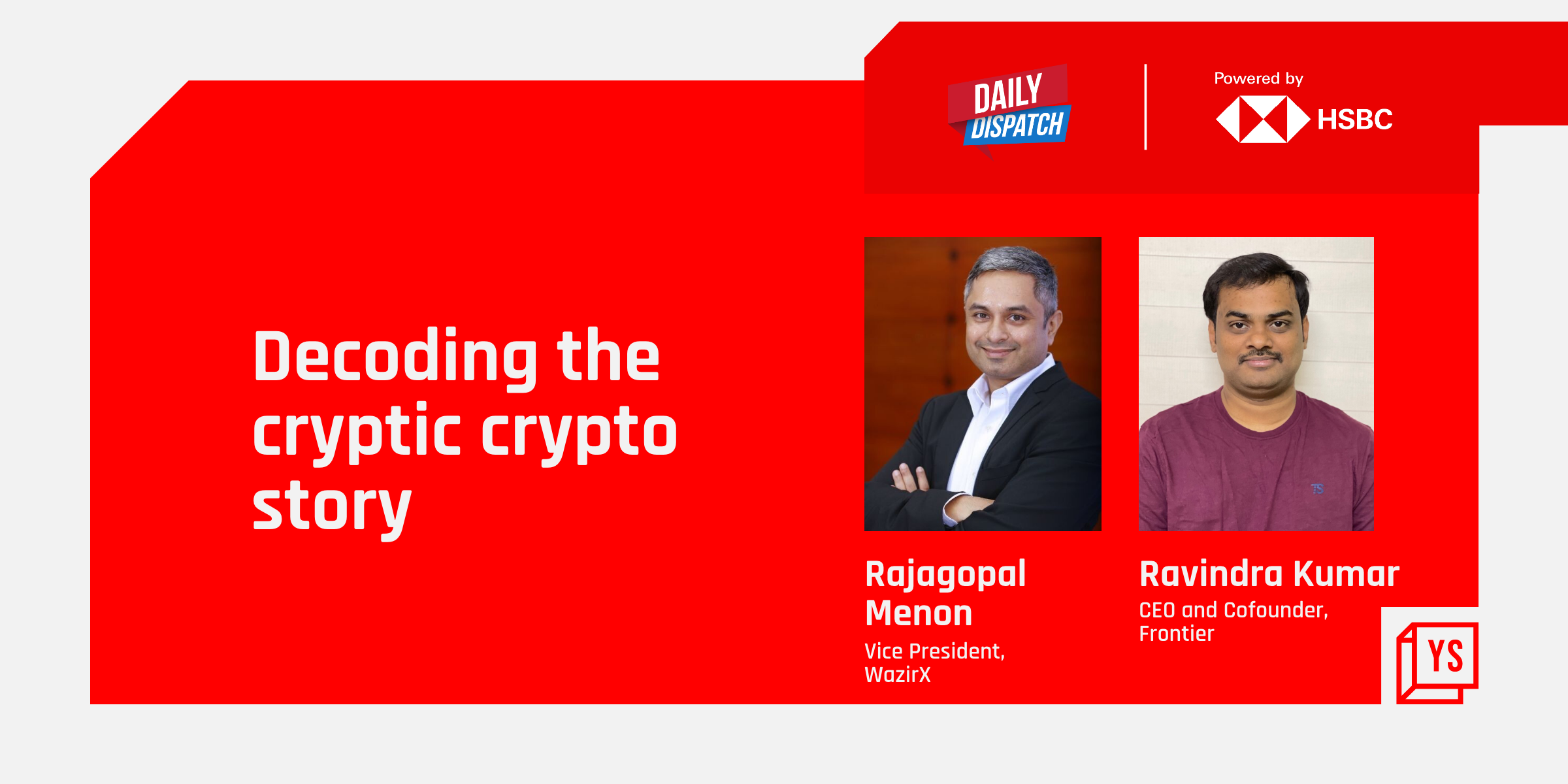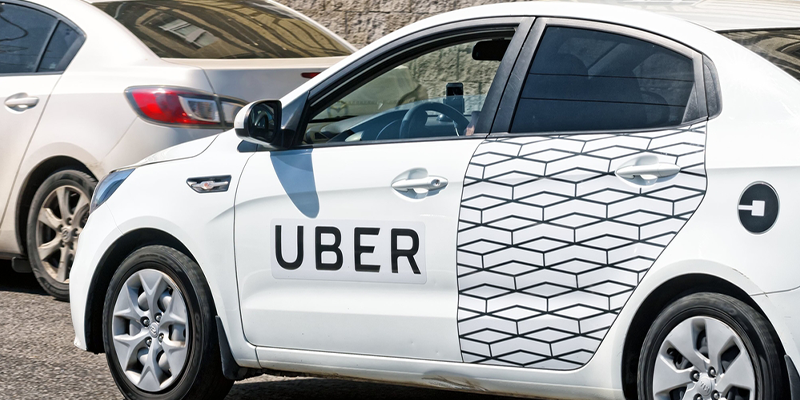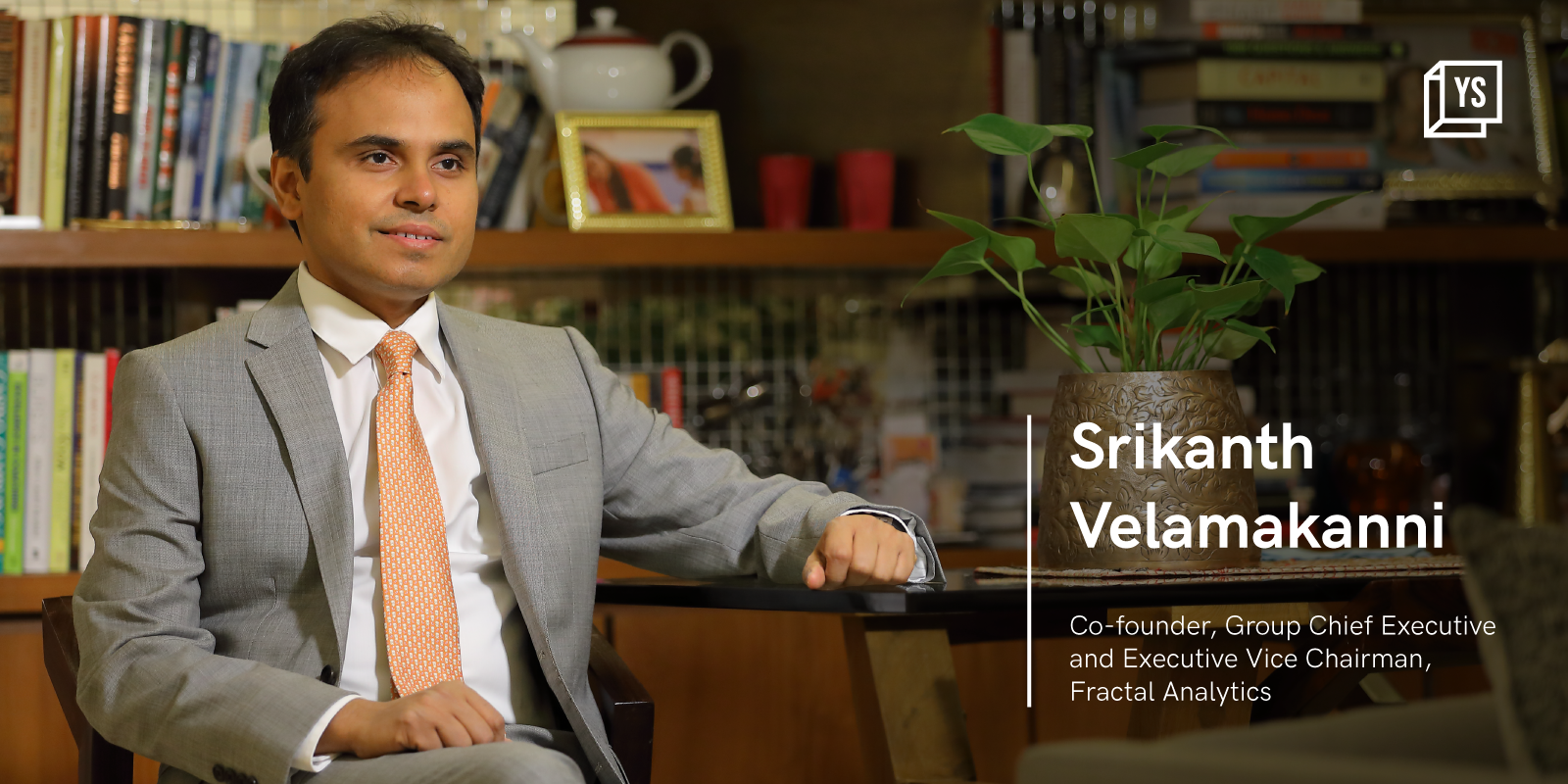[YS Exclusive] Vani Kola opens up about Snapdeal, the importance of integrity, and why the future of Indian e-commerce remains bright
An early investor in India’s venture capital history, Vani Kola is famous for the early bets she placed in e-commerce (Myntra, Snapdeal, et al) when the sector itself was almost non-existent. In 2014, Myntra was acquired by Flipkart, giving the company she founded — Kalaari Capital — a stake in India’s biggest e-commerce player. It was a victory. Not so with Snapdeal, which means Vani has been in the news as a key player in the Snapdeal/Flipkart on-again-off-again M&A saga. Never one to shy away from speaking her mind, Vani spoke passionately and frankly about why she quit the board, the needless and questionable media frenzy over the merger talks, and the importance of integrity for Indian entrepreneurs who are serious about long-term success.
Here are edited excerpts. Watch the full interview here.
Q. You were an early investor in ecommerce when most people didn’t even think about this space. Tell us why (you had) this belief and what got you to be the first?
Sometimes, Shradha, you have to look at things from outside-in. When I came to India in 2006, I saw consumer internet as a great sector. The last decade more or less has seen tremendous validation of that. We have about 100 million Indians who are doing some kind of online transaction. It’s about the next 400 million who are coming online and that’s the rising India opportunity.
Q. How has it been with the companies you’ve invested in — the early journeys and seeing them grow to such high valuations?
I think every journey starts with a vision, an idea, a dream and people who are putting themselves into it. Having been an entrepreneur myself, I understand that journey, I understand the emotional embrace of this... It’s important (that) emotion and reason co-exist, but emotion is critical to be able to build companies. To me, it was about finding entrepreneurs who had that ability to be pioneers, who believed in the vision that we could be aligned (with) as investors and the ‘mission-impossible’ kind of people who got things done despite the many naysayers. There are certain ingredients of tech-background, can-do attitude, pioneering machinery kind of founders who had such conviction that they could overcome all hurdles, known and unknown. We are very fortunate that movement in fact happened, which opened up India to much more global investment, opened the imagination for hundreds, if not thousands, of other entrepreneurs to do this.
Q. Snapdeal and Flipkart. The whole country has been waking up every day to: will they, won’t they? A lot has been talked about the investors… the boardroom dynamics. It also feels that investors, if I may say so, are to be blamed a bit because the deal didn’t materialise. What is your take on it?
I still don’t understand the kind of fascination, as if this is of national interest. (Trust me, it’s not.) … I honestly don’t know why it needs to take up so much print space as it has.
What I find is in taking advantage of not naming sources, we don’t know what are rumours and there is lot of authenticity and journalistic integrity that is compromised... the truth of course (eventually) comes out, but comes out over a period and comes out in bits and pieces.
I grew up in a different India… I take deep pride at the role our media played, with courage, and sometimes at a deep personal cost during the Emergency and so on. To me that is the India media that I am very proud of, that allows democracy to succeed and thrive; that’s rare the world over and we have that in India. We also have this part where a lot of things are rumours, innuendos: somebody said so, so you print it regardless of the truth, and I know to some degree we have been asked questions, which… are simply not true.
Boardrooms require confidentiality. I am absolutely shocked that confidential board matters got leaked when in fact it’s an offence, it’s a legal offence, civil offence to do that. Yet that seems to be engaged largely with a sense of impunity. My advice to founders and leaders of this ecosystem is to conduct their business in private and not to conduct their business through the media.
We attribute all sins to investors and that is wrong. First and foremost, investors are shareholders, more than they are anything else. We look at so many companies that have failed and there is always a question about why did investors give them so much money? There is no question about why did the management team take money when they knew they couldn’t build the business…?
All I would say is be open-minded in trying to assign responsibility to shareholders for every failure. It’s usually not only the investors’ fault when something happens… In fact, CEOs and management teams have so much more leverage than investors because they know the product, they know the market, they have the loyalty and love of their employees (we hope), they have so much more leverage than is attributed to them, and they exercise that leverage too. I see a lot of that happening. It’s not that they are unaware or anything like that. It gets exercised, but it’s not that cool to talk about it.
Q. You have not officially gone on record about this. You resigned from the board of Snapdeal in May this year — what triggered the decision? I remember you being so fond of, always talking about and being a champion of Snapdeal...
There is a difference in being a board member and being a shareholder. For many things, you could be both and the interests are absolutely aligned... A board member’s responsibility is a fiduciary obligation to the company’s solvency and also ensuring that all its shareholders’ interests are protected... A board’s role is to protect all shareholders’ interests to the best of their ability, and I have always taken that role very seriously… There is a code above legal that is moral and ethical that we have to strive to walk. I felt that I could no longer fulfil my responsibility as a board member where I can speak for all the shareholders’ interests… When I felt I could no longer speak for all the shareholders’ interests, the only choice was then not to play that role.
Q. Tell us why the deal didn’t go through and why was it pulled off. You are an insider; I am assuming that you can talk now because there is no deal?
I honestly don’t know the true answer to it, because I probably found out at the same time as the media did. As I said in the past, I believed that this was the right outcome for all the shareholders. That it didn’t happen, I was shocked. I think it was right for the employees, they would have been taken care of. Shareholders obviously won’t have made the money they put in, but they would have been able to move on, and that I thought was right also. Why it didn’t happen is a bit of mystery to me.
I can speculate but nothing is served by speculation. I just know that most of the shareholders wouldn’t have agreed to the choice and the outcome as desirable in what happened. I don’t know if that played a role in the consideration of this outcome at all or not.
Q. One thing that many people talked about, is what came out was this was, in a way, a great moment because there is a Snapdeal 2.0 and the entrepreneurs have taken control of their destiny and they want to go ahead and run the business… How do you take these decisions? What are some of the considerations you should be thinking about?
I have to rise above being a shareholder to be a board member…We have to always put a broader outcome or broader impact above our own personal impact… You have to evaluate the risk, purpose and the conviction of doing that and the loss or impact of that unilateral choice on a broader group of people — this is a responsibility you have to carry as a leader. My choices, my decisions, how do they help or hurt the group of people that have placed their loyalty, their trust in me?
It’s very important that you are walking that path and thought process. I can’t comment because I don’t know what is 2.0, so I don’t have even a personal opinion on how well it’s thought through or whether it can succeed or not. I just know that it’s a very difficult choice to walk away from certainty into uncertainty.
Q. What should young founders and CEOs be thinking about boardroom dynamics, especially when you have so many investors? How does it work? How do you ensure that everyone is in sync?
I think somewhere the perspective on construct is mismatched. Entrepreneurs start a company when there is funding to build a very large business. I don’t know the meaning of this word “boardroom dynamics”. Boardrooms have discussions, they have disagreements. The board is there to question, challenge, and protect views that are presented to it. You have a board, so that there is diversity of viewpoints and that the management team is guided through that diversity. Dynamics makes it feel it is personal, but it is not… The board’s requirement is to do what it takes to align the company towards achieving its own aggressive goals. Disagreements, differences of opinion are by nature in the board. If that doesn’t exist, it’s probably not a good board.
You build the board to have diversity. But also within that, there has to be a process to come to decisions that maybe not everyone is in agreement to, but they get behind it and so that the company can execute… Anyone within the board can lead that role, of bringing consensus after due discussions and disagreements to provide the way forward.
I have rarely seen a board where the entrepreneur says this is what I want to do and the board says, “no”. One of our earliest ecommerce investments was Myntra. There was a new strategy Myntra was going to execute which was called ‘being an online fashion brand’, which is what they became very successful at — that is not where they started. When the management team presented that as a new strategy, there was a lot of discussion. But they stood very firm in their conviction that this is where the market is, and I give them credit for for being right. But that discussion was important and the management team’s role to play that part was important.
The only other board I have ever resigned from was Indiaplaza (where) the management team was headed to a path of insolvency and unable or unwilling to see that. At that point, as a board member, as much as it pains you, the only option you have is to get off the board because you can no longer agree and align with the entrepreneur.
Q. You had tweeted citing HBR on qualities or traits of entrepreneurs and you said that one thing that should be on top of other things should be integrity. Tell me what has been your experience with entrepreneurs and integrity? You’ve worked with so many entrepreneurs, what’s your take and why do you like integrity so much?
Integrity, maybe it’s schooled into me. I don’t know any other way you can sustain long term, be respected and win. Even despite any short-term pinnacles you climb, if you want to be at it for the long term, if you don’t embrace a very strong code of personal ethics and you are not very clearly sorted in your head on what’s your dharma… if you are not very sorted on that and clear, then somewhere there is a fall, and that is a very painful thing. We have enough characters and books globally where we can see how that unravels.
I remember in 2006 when I was trying to raise a fund for India, that was one of the biggest questions: “Hey, India is a corrupt country, and what if these entrepreneurs just take the money and run away?” By and large that hasn’t happened… But integrity to me is much more nuanced, at any given time, it’s the call for what is the right thing to do. You get respected for that decision and that decision sometimes might make you, at a personal level, lose something. But you get respect for having taken the right path.
Integrity to me is everything, every promise you make, every word and commitment you make, what you are willing to do when that test comes… For example, are you willing to take a lot of the money that accumulated into your pocket and offer that back to the employees who might not have had the same deal cut for them? That’s integrity —keeping that promise that you made… In order to create anything of significance, we need leaders who stand that way.
We have entrepreneurs who are running companies, and sometimes they are angel investors, which is not a bad thing, but if they have to go buy that same company then there is deep conflict of interest… These are things as a leader you have to think about. I would love for us to see those leaders emerge because that sets a new standard for Indian entrepreneurs.
Q. On that note I heard yesterday from many people you openly liked and congratulated Flipkart on the big news. What is your take on what is happening with ecommerce in the Indian startup ecosystem?
I don’t know why it’s such a big deal that I would congratulate Flipkart. Why not? It’s tremendous moment of achievement… There was a lot that they have gone through. At any given time, people said that they are not going to succeed. We don’t know yet what the future holds, but they are still standing and standing strongly. I think it’s a moment in the ecosystem to be proud of.
The only respect you get is from succeeding in what you believe in, and hence you have keep your focus on that and not get distracted. That is very important to cultivate.
Q. You went on record to say that you were disappointed , because there are millions of entrepreneurs who will want money from you… you make unusual bets not many VCs will even look at or consider rational but you have done that. What is your current state of mind?
By nature, I am a very pragmatic person, Shradha. What I know I can’t change, I move on from that. You have to look to the future, not the past. You can learn from the past and you must learn from the past, but your focus has to be to the future… I personally believe that it (the failure of the deal) should not have happened but doesn’t matter, it happened. I am looking for other entrepreneurs, I am looking for newer ideas…
Q. Everywhere we are reading that it was a very complex deal and there were lot of complexities involved. Tell us more about that.
I think complexity is an excuse. All deals are complex…I don’t think deal complexity has anything to do with a deal happening or not. The intent has to do with whether a deal happens or not. If there is an intent, a deal gets done by both parties. If any one party does not have the intent to get the deal done, then we see the outcomes that we have seen… we can hide behind many things, and a lot of that mud has been thrown into the media to camouflage intent.
Q. How would you describe your relationship with Softbank?
I remember meeting Masa san for the first time and spending half-a-day with him and hosting him for a fireside chat when he came (to India) … when Softbank led the investment in Snapdeal. I was very inspired and impressed. I have a lot of respect for the firm, which has over time only increased by seeing them in action. In fact, how reticent they have been in the media frenzy to protect the reputations of everyone and have not tried to defend themselves against many things that were false. I have a lot of respect for that. It’s an important lesson that… has reaffirmed to me that you focus on outcomes, you don’t focus on getting dragged into the by lanes of negativity.
My relationship with them is based on genuine respect and regard… Having seen how they have tried to do their best on behalf of all shareholders, I have lot of respect for them. If they were interested in funding some of our other entrepreneurs and companies that we are involved in, I would absolutely advise the entrepreneur to welcome that.
Disclaimer: Kalaari Capital is an investor in YourStory Media.






![[YS Exclusive] Vani Kola opens up about Snapdeal, the importance of integrity, and why the future of Indian e-commerce remains bright](https://images.yourstory.com/cs/wordpress/2017/08/vanikola_aricle_img.jpg?mode=crop&crop=faces&ar=2:1?width=3840&q=75)




